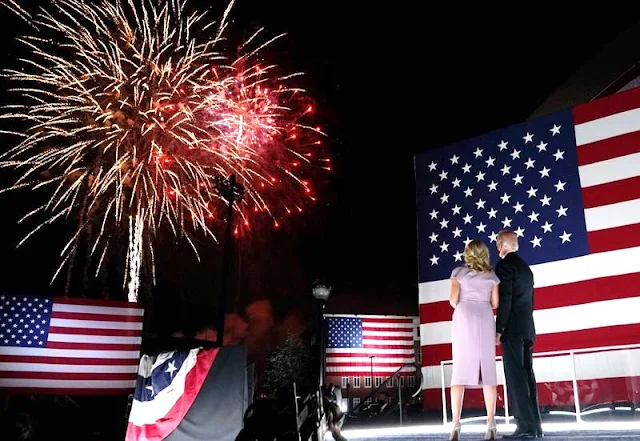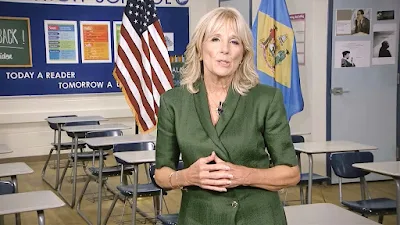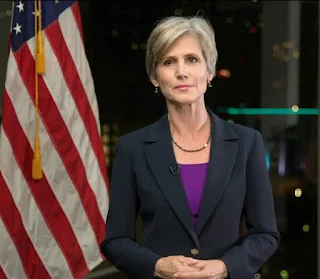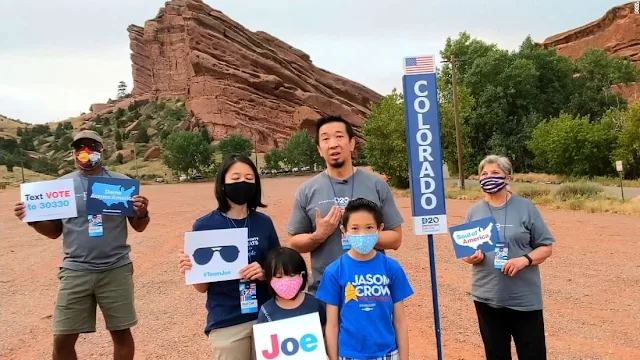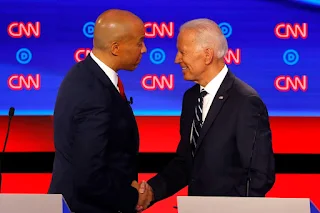When I read this I sensed a racial reference, and had an immediate flashback. But though the word "prejudicial" is loaded, the following sentence did not fully support a racial interpretation, though it is otherwise specious. So I gave Jackson the benefit of the doubt and didn't mention it.
Now it seems my first reaction wasn't wrong. I've since learned of others who interpreted it the same way, especially after the most recent Humboldt County supervisors Zoom meeting, in which Dr. Frankovich participated. When the discussion turned to HSU and the exchange of emails, here's what Lost Coast Outpost reported:
Third District Supervisor Mike Wilson urged people not to “other” HSU students, saying they’re “really adults and residents,” many of whom will live here for years — some permanently.
First District Supervisor Rex Bohn said he wanted to applaud Wilson for that statement, though Second District Supervisor Estelle Fennell noted, “Some students from HSU do come [to Humboldt County] from areas on the [governor’s] monitoring list.”
Again, "other" or "othering" can have references other than to race, but I'm told that it is used these days mostly in that context.
Since then, Dr. Frankovich has refuted charges of racism at least twice publicly. In her August 19 media availability, she read a statement that included this summary of her actions regarding HSU (in part, and with my emphasis in bold):
"Certainly many HSU students are year-round Humboldt residents, but on August 7th I was informed that up to 850 additional students would begin arriving on the 15th for residence in dorms and would arrive over [the span of] about a week while an additional, unknown number of students would be arriving to off-campus housing throughout the month.
In light of our current epidemiology, I was concerned and expressed that concern to the HSU planning group. Later that day, the state released guidance for higher education and reopening. This affirmed my concerns. It was clear that with our increasing case counts, multiple outbreaks, current testing capacity and need, as well as contact investigation demands, we did not meet state recommendations regarding on-site instruction.
Let me make one thing clear: This is not a case of “othering.” It is a case of trying to make safe choices for the entire community in the midst of a pandemic. This is about trying to juggle competing needs for testing resources across skilled nursing facilities, agricultural settings, tribal communities, local public schools, businesses and organizations, and the community as a whole.
State resources have not been able to be utilized to date so our local laboratory is currently shouldering the entire responsibility on its own. Insinuations of racism and flat-out allegations of incompetence have been directed toward me and this incredible health department that I proudly represent simply for stating the facts. That has been disheartening to say the least."
In response to a question beginning her August 21 avail, as to whether the charges of racism and incompetence came from Tom Jackson in his emails "or otherwise," she replied: " I have had both email exchanges and verbal conversations with President Jackson, and at this point I just want to reiterate that I don't plan on discussing this further, we're moving on."
So reading between the lines--and this is all about dog whistles and reading between the lines--the charge of racism did come from President Jackson, in either emails or conversation or, it seems most likely, both.
Jackson started his first email expressing disappointment that Dr. Frankovich had not waited for him to return her call, but committed her views to an email. This suggests he knew that the emails were going to be public records. So perhaps in his email, he was being circumspect about his charge.
Which brings me back to my flashback when I read that sentence in his long email. It was to the 1991 Senate hearings on the nomination of Clarence Thomas to the Supreme Court. Anita Hill had completed her devastating testimony, charging Thomas in great detail with a pattern of behavior that was--at the very least--improper, and legally called sexual harassment.
In a hearing that followed--which I watched on TV at the time--Thomas was asked to respond. Instead of being contrite or even defending himself, he accused the committee itself of conducting "a high tech lynching." It was the first time that race had figured in the hearings, and the white Senators--including Joe Biden--were visibly aghast. A Black nominee to the Supreme Court was accusing them of racism.
There were four other women waiting to testify, supporting Anita Hill's contentions (Hill of course is also Black), but suddenly their testimony was cancelled, the hearings folded, and Clarence Thomas has been on the Supreme Court ever since.
The Clarence Thomas move is what immediately came to mind when I read Tom Jackson's letter. The move is a simple one, though it can be instantly intimidating. Its purpose is to inject race into a controversy in order to to distract, to muddy the waters and put those seen as adversaries on the defensive, and of course it is particularly effective when the charge is made by a Black person.
There are many issues in which racism, including institutional and systemic racism, and racial prejudice, are relevant. This is not one of them. Since when did "HSU student" become code for "Black student"? Since when is California outside Humboldt County synonymous with racial othering, in the context of public health? It is preposterous on the face of it, and cheapens in a most cynical way the sincere efforts towards racial justice and racial equality and understanding.
The issue here isn't the race of an incoming student, it is that student's potential as a virus carrier and super-spreader, given the level of infections where they are coming from, and the conditions of college life when they get here-- and especially the widespread ignoring of masking and social distancing among college students and others of that age group (excepting front line workers on the job), which is clearly visible everywhere, including here and now.
Dr. Frankovich's statement was based on science, not on race. If we start confusing these, especially as a desperate ploy, then we will never control this pandemic, and more people will get sick and more will die, and the economy and education--including higher education--will suffer greater loss.
As ABC News reports, at least three dozen states are seeing Covid outbreaks among returning students, and some universities that tried to reopen, are closing because of covid. Some outbreaks have already been attributed to large parties without masks or social distancing among students, with many other such parties also reported. So it is likely more will close their classes and dorms and send their students home, or should.
HSU has reported four students with infections so far, with hundreds yet to test, and with no announced plans to test students living in the community. Dr. Frankovich referred to their "unknown number." Yet they will be interacting with other students and the community.
And of course the tragic rebound of the Clarence Thomas move that supports HSU's desperate insistence on populating dorms and classes and off-campus apartments, if this turns out to be devastating to the community's health, is that statistically the burden of serious covid illness and death is felt disproportionately among Blacks, Native and other non-White communities.
I also now suspect who were among those "important people" Jackson said he was sending copies of his email. Could it have been supervisors Wilson and Bohn, with their less than subtle insinuations of "othering" to the person and the people who are doing the most, relentlessly, to safeguard this community's health?
Add these supervisors' names to Jackson's, as well as that of the Chancellor of the state university system, as officials on the public payrolls who must be held accountable for whatever happens this fall in Arcata and Humboldt County.








